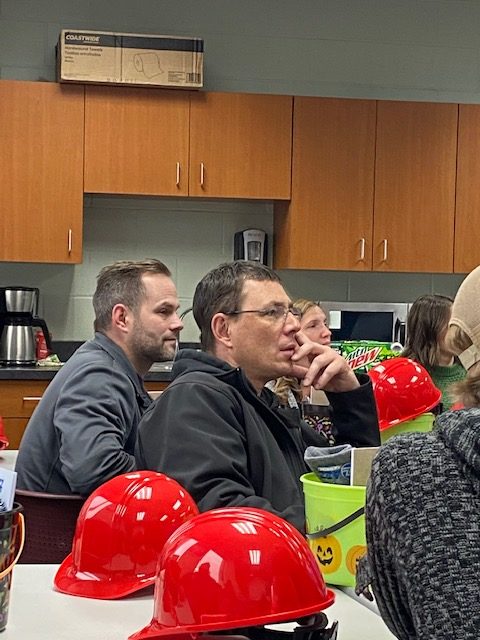It’s easy to get caught up in what we assume from a situation. Have you ever had a team member you thought was not actively engaged? Or worked with someone you felt didn’t like you and your ideas? Utilizing the skills of the team means learning about their needs to reach them effectively.
Sometimes these assumptions are true. Sometimes we are viewing the situation from our own
perspective rather than theirs.
Recognizing different personality types can be helpful in getting to the bottom of these types of problems. Our personality type influences how we react and understand situations. A basic understanding of the differences can help prevent conflict and engage those who may seem disinterested.
Our Personality Type
A simple example of this is extroverts viewing introverts and their lack of immediate comments, as a form of disinterest. Extroverts have a tendency to fill silences during meetings and introverts require time to consider their thoughts. This pause can be seen as rude. Similarly, introverts will have a negative opinion of extroverts filling in spaces of silence.
That said, extroverts and introverts tend to react in the exact way that can damper the opposite personality type’s engagement. Recognizing the needs of different team members can be extremely helpful in creating a more welcoming environment for all personality types.
If you dive deeper, these differences continue to exist throughout differing personality types.
Sensing team members might put off intuitive team members by asking “helpful questions”, or lacking foresight in planning. Intuitive leaders may leave out details important to sensers and may require a reminder of current tasks rather than future goals (Rasmussen, 2008). These differences can be overcome with some intentional considerations to other types of leaders. Sensers should share the future benefits with enthusiasm to intuitive people, where N’s can show evidence and facts to S’s. Being clear on the purpose, the vision of the group or discussion can give clarity to both types of leaders.
Thinking Vs. Feeling
Thinkers and feelers have very differing preferences in general. Thinkers tend to be concise, objective and critical, whereas feelers are more personal with a toxic reaction to disharmony. They focus on the impact to people and seek the involvement of others. Thinkers prefer pros and cons of options and involvement in tasks. While neither method is better or worse, both are helpful in different circumstances.
Thinkers should be mindful of their critical or negative feedback, which can negatively impact feelers. Feelers will reach thinkers better with structure and clarity in responses that state principles of the project or situation (Rasmussen, 2008).
Using a decision-making model that includes the realities, possibilities, logical analysis, and the impact on people is critical to making all personality types feel heard.
C. Rasmussen, 2008

Utilizing the Skills of the Team – Working Together
Different personality types bring varied skills and opportunities to the team. Working together to utilize the skills in the team, especially with people who think differently than you do, requires practice. The key component to successfully navigating facilitating with multiple personalities within your team, is to really dive into the needs of your team. Keeping an open mind and learning about what is important to members stands out and offers clarity.
Teamwork is a puzzle to solve but learning about each piece offers the opportunity to capitalize on all of the skills of the team efficiently.
To learn more about being a leader in your community, check out our blog post here.


